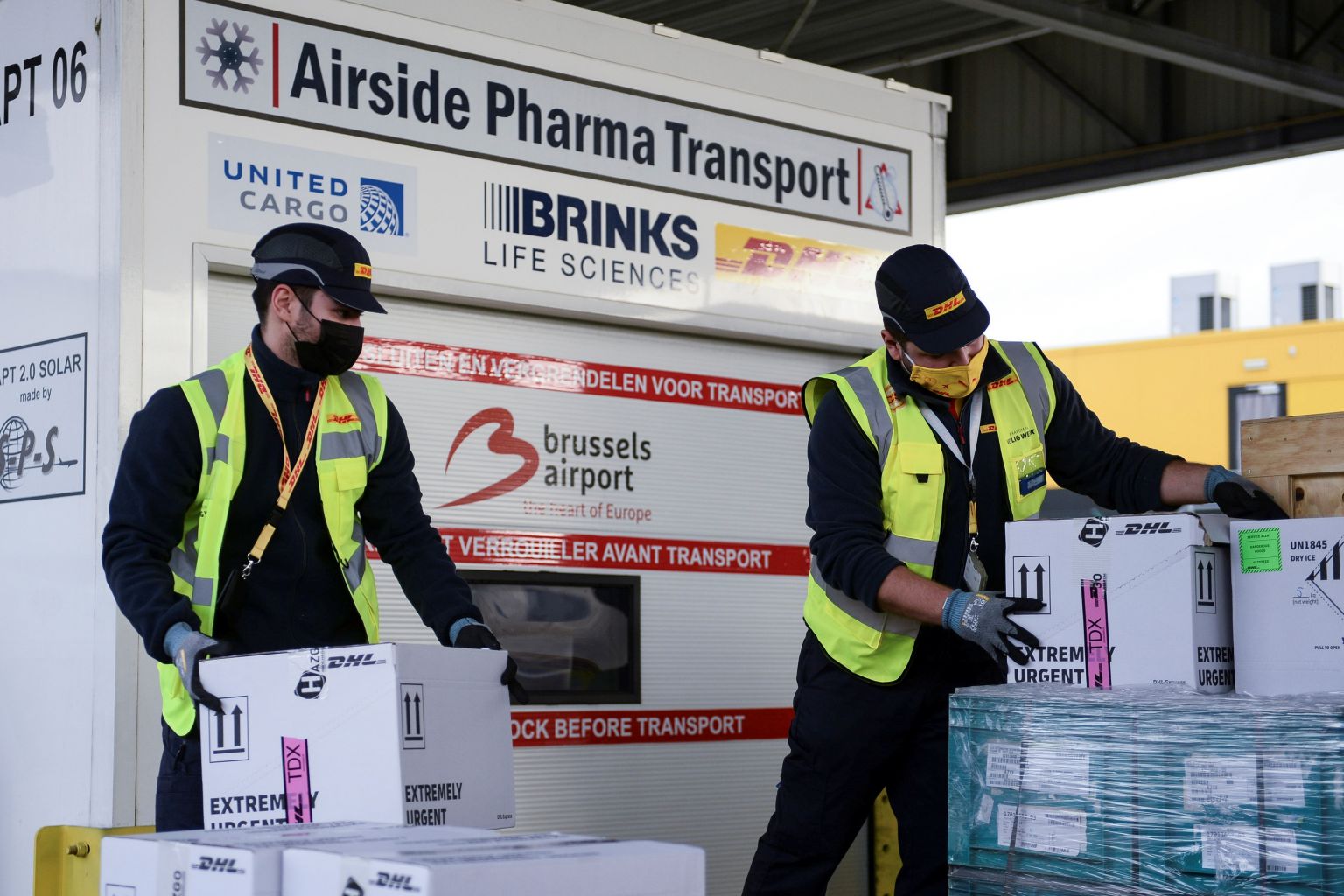EU sets Covid-19 vaccine export controls, risking global doses battle
Sign up now: Get ST's newsletters delivered to your inbox

Workers prepare cool boxes for Covid-19 vaccines to be transported by an airplane at Brussels International Airport, on Dec 1, 2020.
PHOTO: REUTERS
Follow topic:
BRUSSELS (BLOOMBERG) - The European Union has unveiled a drastic plan to restrict the export of Covid-19 vaccines, stepping up its fight over access to millions of doses it says it has been unfairly denied.
With the EU far behind Britain and the US in the race to vaccinate its people against the coronavirus, the move by the European Commission will oblige drug companies such as Pfizer and AstraZeneca to obtain prior authorisation before sending shots manufactured in the bloc to other countries.
"The protections and safety of our citizens is a priority and the challenges we now face left us with no choice but to act," EU Trade Commissioner Valdis Dombrovskis told reporters on Friday (Jan 29) in Brussels. "This is a race against the clock - we cannot lose time because of vaccines not being delivered on schedule."
Britain, the US and Canada weren't included in a list of more than 90 countries that were granted exemptions from the mechanism.
The step represents a dramatic escalation in the global battle for vaccines, with thousands dying every day and the European economy struggling under lockdown measures that have lasted almost a year. But the move risks drawing accusations of protectionism as the EU tries to compensate for perceived missteps in negotiations with drugmakers and the slow rollout of national vaccination programmes.
The new rules, which will run until the end of March, will allow EU states to block exports if a set of pre-defined criteria haven't been met, although officials were eager to point out that the move stopped short of blanket bans. The main condition will be that companies have already delivered a sufficient number of dosages to EU members, as set out in existing purchase agreements.
The curbs will affect vaccine production and filling facilities operated by Astra, Moderna and Pfizer in Belgium, the Netherlands, Spain, France and elsewhere.
While the move raises questions about its legality, World Trade Organisation rules regarding export restrictions have exemptions in the event of critical shortages of essential products or the need to protect human life and health. And the WTO's dispute settlement system has been hamstrung since 2019, meaning a challenge wouldn't have a remedy at the Geneva-based trade body.
"We now need transparency on where the vaccines we secured are going and ensure that they reach our citizens," EU Health Commissioner Stella Kyriakides said in a statement. "We are accountable towards the European citizens and taxpayers - that is a key principle for us."
The dispute was triggered by Astra's decision to prioritise Britain over the EU in what the bloc claimed is a breach of terms. The company warned last week that deliveries of its doses to the EU this quarter would be less than half what was initially planned.
Earlier on Friday, Commission President Ursula von der Leyen demanded that Astra fulfill its contractual obligations for the vaccine, and the bloc made public its contract with the pharmaceutical company.
"What irritated us was that, unlike the other companies, AstraZeneca very suddenly announced that it was drastically reducing its agreed deliveries for the first quarter and did not provide understandable reasons why," she told Germany's DLF radio. "Now we want clarity on that."
Separately, trial results released Friday by Johnson & Johnson highlight how much is at stake from potential supply disruptions, as billions wait to be immunised before constant mutations render the virus less vulnerable to existing vaccines.
In South Africa, where a Covid variant is circulating widely, J&J's vaccine was only 57 per cent effective, versus a 72 per cent efficacy in the US, where this mutation is less prevalent.

